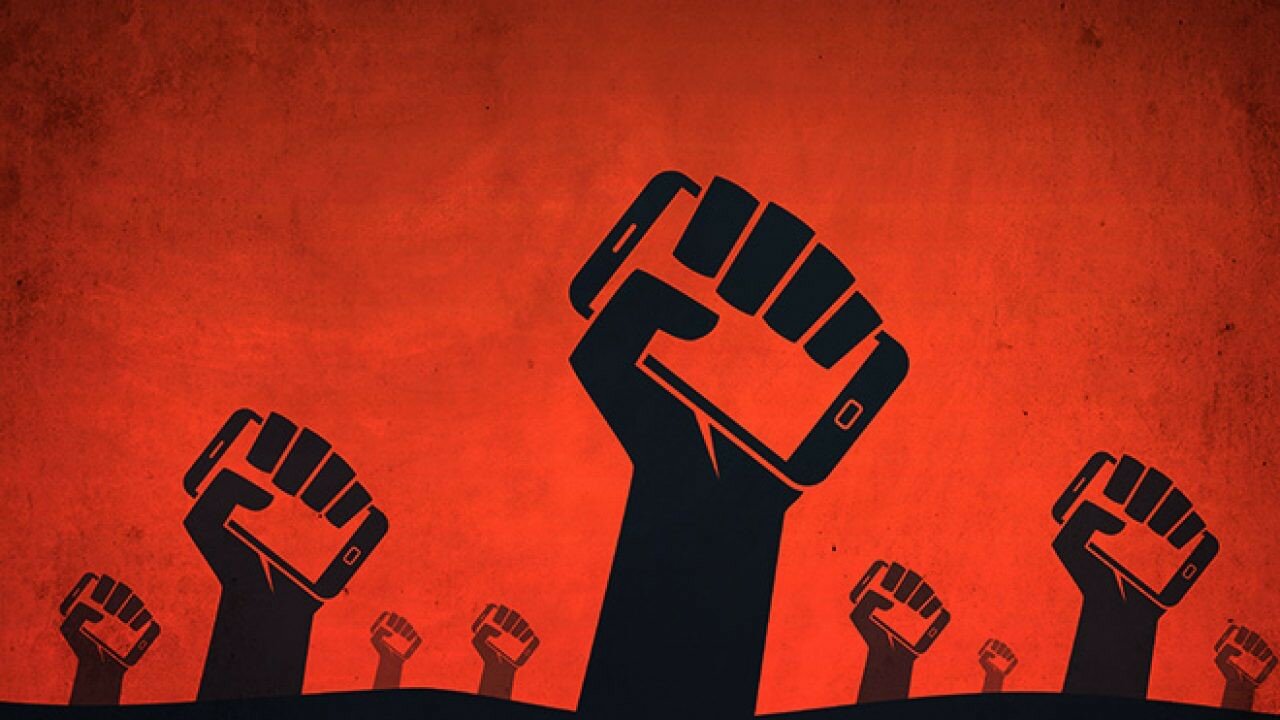Can Online Activism Safeguard Democracy?
With the Internet and the emergence of digital socialisation platforms, speaking out has become possible and spontaneous for everyone. Everyone can publish on social networks, produce content and give their opinion on everything. This societal evolution, thanks to technology, has redefined speaking out in these digital public spaces whose spokespersons are cyber-activists.
Platforms such as Twitter, TikTok, Facebook and Youtube allow us to express ourselves and have become a means of denunciation, individually or collectively. This has allowed the emergence of a specific type of opinion leader that we call cyberactivists. They position themselves as the spokespersons of the people by denouncing their country's political and social management and, at the same time, by promoting democracy and allowing citizens to hold accountable those who govern. Cyber-activists use applications, social media and other technology to raise awareness, recruit activists and organise protests. Online activism is, therefore, the ideal tool for a participatory democracy where citizens can intervene very regularly in public debate.
For instance, signing online petitions can be considered a form of activism. Online petitions appear to put pressure on political decision-makers on social or environmental issues. The Internet has accelerated this form of citizen participation in public affairs. For example, in South Korea in 2017, President Moon Jae-in set up a system of petitions on the presidency website for Koreans to directly challenge the government. When a petition reached 200,000 signatories, the Korean government had 30 days to respond to the citizens' requests. Even if this platform shut down in 2022 with the end of Moon’s presidency, this model of democracy has been very successful and has been exported to other countries, notably the United Kingdom. In France, the movement of Gilets Jaunes - yellow vests - began with an online petition and then continued on social networks and streets. The change.org platform is one of the largest petition platforms that has allowed citizens to express themselves and start petitions on issues they feel strongly about.
The sharing of online petitions is now ubiquitous online. But what does it mean for democracy? Critics describe these actions as “slacktivism”. They argue that people take actions online in ways that involve little personal effort - such as sharing online petitions, changing their profile picture on Facebook in support of political and social causes or retweeting a sentiment - which has zero political or social impact. However, optimists think that these acts can be effective forms of democratic engagement which can give people an accessible entry point into politics. They also believe that it enables more participation down the line.
Online activism is the continuation of public media space. We have gone from television, radio and newspapers to social networks, which might prevent attempts to suppress or control citizen speech. Online activism allows the vulnerable and under-represented to use the ease of access to public attention to make their case. For example, the #MeToo movement was able to translate the shared experiences of sexism into real-world campaigns and action. This revolution allows citizens to express themselves according to their political agenda, even in countries run by authoritarian leaders where the circulation of information can be controlled.
Cyberactivists do not only engage in political activism but also take initiatives regarding ecology or education. Online activism has also brought to light online creators who educate and advocate for the rights of people. Today we can contribute to these initiatives wherever we are in the world.
One of the characteristics of online activism and the Internet is that they go beyond institutions. Online activism deports the centre of gravity of democracy towards the citizens while deviating from the traditional representative democracy. This allows citizens to express themselves with fewer filters and to have more direct access to public space. There is still a certain tension that exists between citizens who express themselves more and more freely and the institutions that run after them.
Can we really say everything on social media? Cyber-activists are often arrested and charged for publishing human rights-related information on websites, blogs or social networking sites or for criticising authorities or government policies, both online and offline. Charges under cyber crime or defamation laws are often used against online expression. This was the case of Naïm Touré, a cyber activist from Burkina Faso who went to jail in 2018 over a Facebook post on charges of 'incitement to revolt’. Some activists are even arrested for criticising their president. This is the case of Ugandan activist Kakwenza Rukirabashaija who was arrested in December 2021 for criticising President Yoweri Museveni on Twitter. Digital repression is not the priority domain of autocratic governments: There is evidence that democracies use overt coercion against digital activists. The British police have monitored social media to make pre-emptive arrests before protests occur. In the United States, the Federal Bureau of Investigation has used Twitter posts to justify raids on activists’ homes. The lack of human rights online is alarming: Even if the Internet and social media can enhance democratic values and human rights, they are also deployed and shaped by many institutions to their own strategic advantage. Cyberactivists end up practising a form of self-censorship when they know that the authorities are spying on them. This surveillance impacts the right to freedom of speech which is also closely linked to the right to Internet access, a topic I wrote about last week.
The free flow of information via the Internet and social media contributes to open debate and an exchange of ideas, which are core pillars of democracy. Institutions have a great interest in taking advantage of these tools to include a greater culture of interactivity, commentary and likes to dialogue with citizens. The digital age has profound influences on democracy and citizens. Isn’t it time we reflect on the drafting of a declaration of human rights in the digital age?


